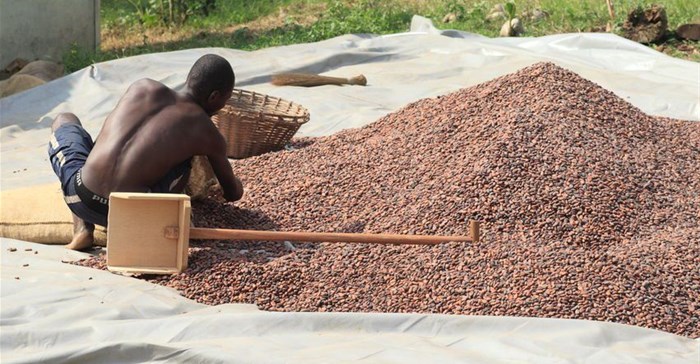Cadbury-maker Mondelez pumps another $600m into cocoa sustainability programme

The snack foods giant aims to increase cocoa volume at scale and will work with approximately 300,000 farmers in the programme by 2030, up from the current 200,000 farmers.
Call for greater sector-wide effort
With this investment, Mondelez said it hopes to catalyse sector collaboration to help address systemic environmental and human rights challenges and improve cocoa farmer livelihoods.
“As one of the world’s leading snacking companies, it is a priority to continue making our most important ingredients, such as cocoa, right, and Cocoa Life sits at the heart of this strategy,” said Dirk Van de Put, chairman and CEO, Mondelez International.
“While we are excited about the promise of our investments, we are calling for more sector-wide effort and actions to drive greater impact, including new private-public partnerships, as we aim to catalyse ground-breaking collaboration to help move cocoa forward together.”
Mondelez International introduced Cocoa Life in 2012 to secure supply of more sustainable cocoa and establish an integrated approach striving to tackle the root causes of systemic issues in cocoa including farm productivity, farmer livelihoods, community development, and helping combat child labour and deforestation, together in one programme.
Ten years on, the programme has reached critical scale with over 200,000 farmers in the programme, $400m invested by the end of 2022 and measurable impact results including:
- Farmer net incomes have increased by roughly 15% in Ghana and 33% in Cote d’Ivoire
- Cocoa yields are higher, with double-digit percentage increases in farmers earning a living income
- 61% of Cocoa Life communities in West Africa covered with child labour monitoring and remediation systems, with a goal to reach 100% by 2025
Scaling progress
According to Mondelez, key lessons learned over the past 10 years will allow it to accelerate the Cocoa Life programme.
These learnings include applying an integrated approach to help deliver impact at scale suited to the farmer, community, and landscape; focusing on enabling farmers to increase their income; and accelerating innovation in cocoa production supported by incentives designed to professionalise smallholder cocoa farming and introduce climate-resilient, new producing models.
By 2030, Cocoa Life aims to increase the number of farming households reaching a living income, enhance child protection systems and access to quality education in Cocoa Life communities, and seek no deforestation on Cocoa Life farms globally.
The programme focus areas will include:
- Farmer income: Working collaboratively to develop a mechanism that supports a decent price for farmers and working with women groups to help develop additional business opportunities.
- Child protection and education: Continuing to scale up child labour monitoring and remediation systems and actively engaging in public-private partnerships working towards improving quality education.
- No deforestation: Helping to strengthen deforestation monitoring systems, promote agroforestry and make forest conservation more attractive.
“As we celebrate the 10-year anniversary of Cocoa Life, we are excited to announce the next phase,” said Christine Montenegro McGrath, senior vice president and chief impact and sustainability officer, Mondelez International.
“While progress and impact have been made, cocoa farmers and their communities are still facing big challenges. We are passionate about helping to drive lasting change across the whole cocoa sector and are doubling down on Cocoa Life’s integrated approach because we know only a sector-wide long-term strategy, supported by action by all industry players, producing and consuming governments, and civil society will lead to lasting impact.”













